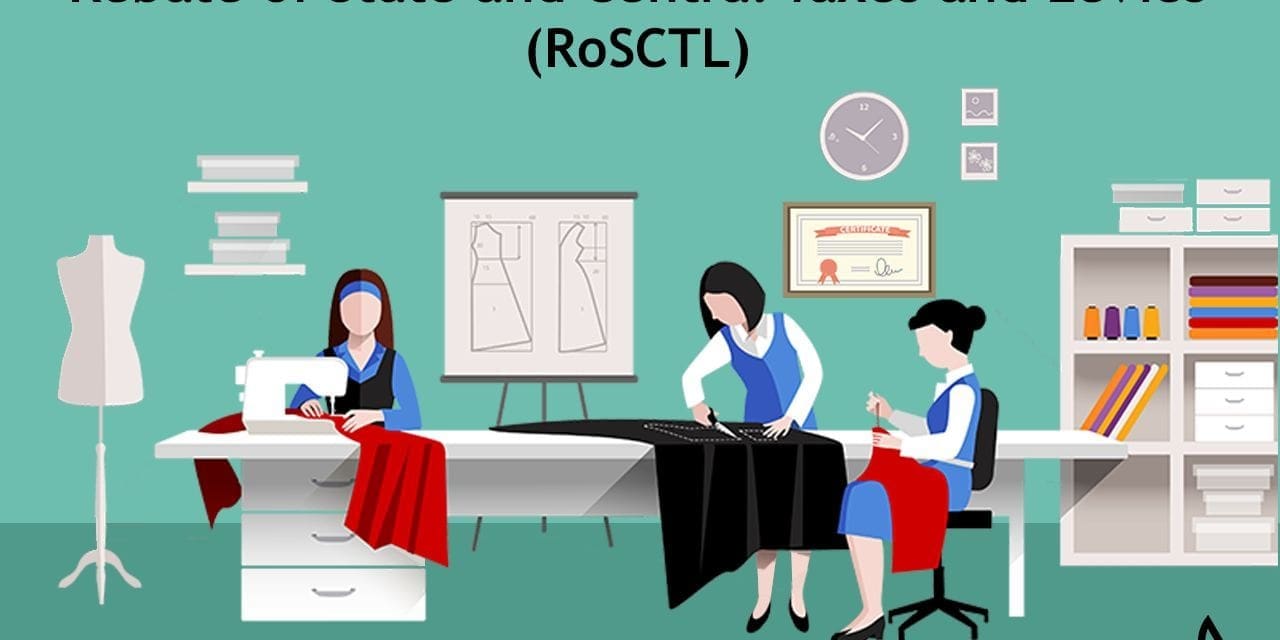CMAI QUOTE
The Union Cabinet has approved the extension of the Scheme for Rebate of State and Central Taxes and Levies (RoSCTL) for the export of Apparel/Garments and Made-ups until March 31, 2026. The decision has been welcomed by the Clothing Manufacturers Association of India (CMAI), with its President, Rajesh Masand, expressing gratitude to the Government and the Ministry of Textiles. Masand emphasised the importance of predictability and stability in long-term trade planning, particularly in the textiles sector, where orders are often placed well in advance. He also highlighted that the RoSCTL Scheme aligns with the principle of not exporting taxes and duties, ensuring a level playing field for international exports. The scheme extension aims to enhance the competitiveness of the garment and made-ups sectors in exports.
PDEXCIL QUOTE
Mr. Vishwanath R. Agarwal, Chairman of PDEXCIL, expressed his appreciation for continuing the RoSCTL scheme for two more years. He emphasised the importance of a stable policy regime in the textile sector, where long-term trade planning requires predictability and stability. The RoSCTL scheme ensures this stability, removes the burden of taxes and levies, and promotes a level playing field based on the principle of exporting goods rather than domestic taxes. The scheme’s objective is to compensate for state and central taxes and levies in addition to the Duty Drawback Scheme. It aims to enable a level playing field in the international market for apparel and made-ups exports by not exporting taxes and duties. The scheme makes these products cost-competitive and adopts the principle of zero-rated export. Other textile products not covered under RoSCTL can avail of the benefits under RoDTEP. The rebate of state taxes and levies includes VAT on fuel, mandi tax, stamp duty, and other taxes, while the rebate of central taxes and levies covers excise duty and CGST. The RoSCTL has significantly enhanced the competitiveness of Indian exports in the apparel and made-ups segments. Mr Agarwal welcomed the interim Union Budget and hoped the full-fledged budget in July would address the industry’s concerns regarding raw materials and other demands. He expressed satisfaction with the increased allocation for the Ministry of Textiles, which will support various schemes and initiatives.
SIMA Quote
The Indian Textiles & Clothing (T&C) sector contributes about 8.00% to the country’s overall exports. However, the export of T&C has been stagnant at around USD 35 to 37 billion, with a major rise seen during 2021-22 due to pent-up demand after the second wave of COVID-19. To sustain global competitiveness and explore new markets, the Government of India has been formulating and revising export-promoting schemes such as Duty Drawback, IES, RoSCTL, RoDTEP, etc. One such scheme is the Rebate of State and Central Taxes and Levies (ROSCTL), which refunds blocked duties and levies on export products. Initially valid till 31.03.2020, the scheme has been intermittently extended and is currently valid till 31.03.2024. However, through the interim Union Budget for fiscal 2024-25, the scheme has been extended till 31.03.2026. The extension of the ROSCTL scheme has been applauded by industry experts, who believe it will help sustain the competitiveness of Indian textile exporters globally and enable them to secure long-term export contracts.
CITI Quote
The Chairman of the Confederation of Indian Textile Industry (CITI), Shri Rakesh Mehra, commended Finance Minister Smt. Nirmala Sitharaman for her sixth budget, which aims to transform India into a developed nation by 2047. Although the interim budget does not contain significant policy announcements, Mehra emphasised the need for immediate relief in the spinning sector amid financial stress. The Textile budget received a 27.6% increase, mainly due to the allocation of Rs 600 crore for the Cotton Corporation of India (CCI) towards cotton Minimum Support Price (MSP) operations. Mehra expressed hope in revamped policies for cotton procurement to ensure price stability and discourage speculative trading. Regarding the Apparel industry, Mehra welcomed the extension of the Remission of Duties or Taxes on Export Product (RoSCTL) scheme for two years. However, the allocation for RoSCTL and the Remission of Duties or Taxes on Export Production (RoDTEP) in the present budget increased modestly. The industry anticipates better trade promotion allocations in the upcoming full budget. Mehra also acknowledged the increased focus on domestic consumption, which could stimulate economic expansion and benefit the textile sector. The industry expects the removal of import duty on cotton and cotton waste and an increase in Basic Customs Duty (BCD) on Man Made Fabric Yarn to curb cheaper imports. Additionally, Mehra applauded the government’s emphasis on empowering Micro, Small, and Medium Enterprises (MSMEs) for growth, global competitiveness, and energy security.

